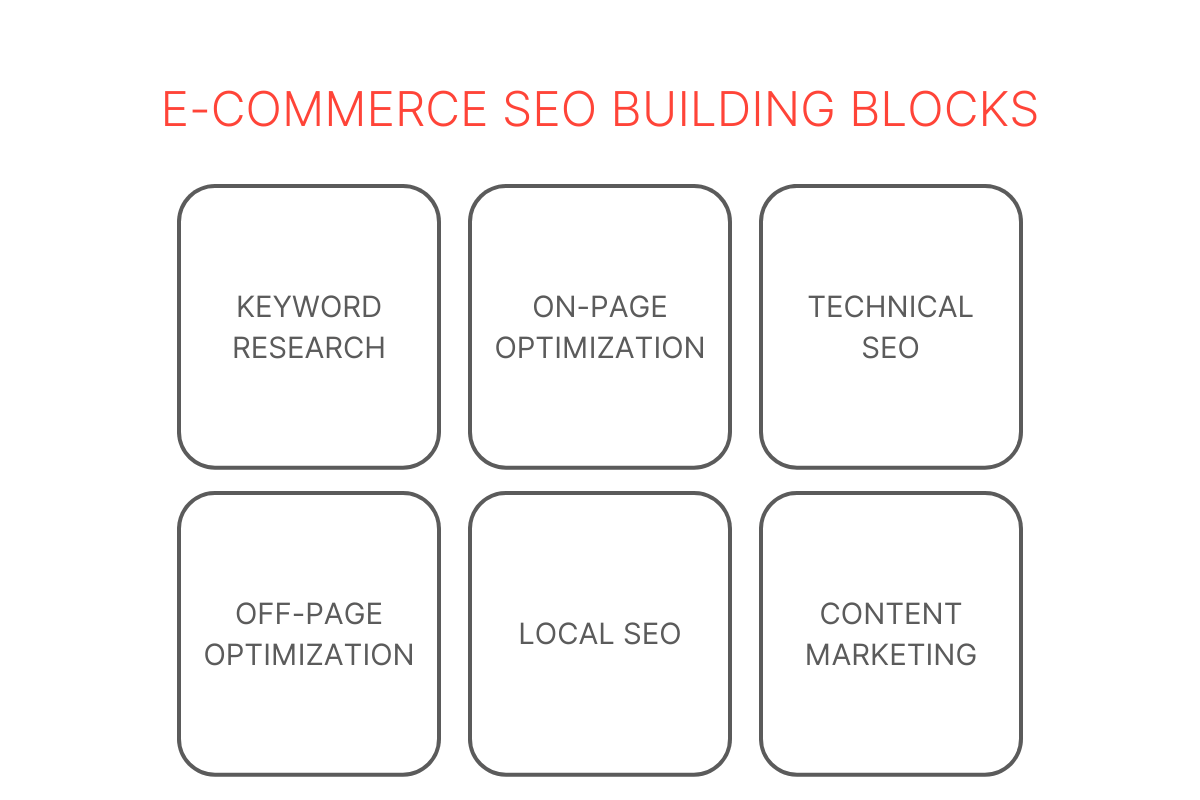E-commerce is a cutthroat world, and if you are not at the top of your game, you are missing out on sales. But fear not, this comprehensive guide on e-commerce SEO will help you navigate the murky waters of search engine optimization and skyrocket your online store’s rankings. Buckle up and let’s dive right in!
E-commerce SEO: What you need to know
What is e-commerce SEO?
E-commerce SEO is the art and science of optimizing your online store to rank higher in search engine results pages (SERPs). By implementing SEO best practices, you can increase your store’s visibility, attract more organic traffic, and ultimately, drive more sales.
Why is e-commerce SEO important?
In today’s digital age, online shopping has become the norm, and competition is fiercer than ever. To stand out from the crowd, you need to ensure that your online store is visible to potential customers. E-commerce SEO plays a crucial role in achieving this by helping search engines understand and rank your store higher in the SERPs.
The building blocks of e-commerce SEO
Keyword research: The foundation of your SEO strategy
Keyword research is the process of finding the most relevant and high-traffic keywords for your online store. By targeting these keywords, you can improve your store’s visibility and attract more potential customers.
Tips for an effective keyword research
- Use keyword research tools like Google Keyword Planner, Ahrefs, or SEMrush to find relevant keywords.
- Look for long-tail keywords, which are longer and more specific phrases that customers might use when searching for your products.
- Analyze your competitors’ keywords to identify any gaps you can exploit.
On-page optimization: Making your store SEO-friendly
On-page optimization refers to the process of optimizing individual pages on your website to improve their search engine rankings. This includes tweaking various elements such as meta tags, headers, URLs, and content.
Crucial on-page optimization techniques
- Write unique and engaging product descriptions that incorporate your target keywords.
- Optimize your title tags and meta descriptions with relevant keywords.
- Use header tags (H1, H2, H3) to structure your content and make it easy for search engines to understand.
- Create SEO-friendly URLs that include your target keywords.
- Add alt tags to your images to help search engines understand their content.
Technical SEO: Ensuring your store runs smoothly
Technical SEO focuses on improving your online store’s backend to enhance search engine crawlers’ ability to index your site. By fixing technical issues, you can ensure that search engines can access and understand your website’s content.
Key technical SEO factors to consider
- Improve your site’s loading speed to enhance user experience and improve rankings.
- Ensure your website is mobile-friendly, as most people shop on their smartphones.
- Implement an SSL certificate to secure your website and build trust with customers.
- Create a sitemap to help search engines crawl and index your site more efficiently.
- Fix broken links and 404 errors to avoid negatively impacting your SEO efforts.
Off-page optimization: Building your store’s authority
Off-page optimization is all about building your online store’s reputation and authority in the eyes of search engines. This is achieved by acquiring high-quality backlinks, which are links from other websites pointing to your store.
Strategies for an effective off-page optimization
- Reach out to bloggers and influencers in your niche for product reviews and collaborations.
- Create shareable and engaging content that attracts links naturally.
- Leverage social media platforms to share your content and generate buzz.
- Participate in relevant forums and communities to build relationships and showcase your expertise.
- Use PR tactics, such as press releases and media outreach, to gain coverage and backlinks.
Local SEO: Capturing your local market
For online stores that also have a brick-and-mortar presence, local SEO is crucial. By optimizing your store for local searches, you can attract customers in your area who are more likely to visit your physical store or choose your delivery services.
Local SEO tips for e-commerce stores
- Create and optimize a Google My Business listing for your store.
- Add local keywords to your website’s content, titles, and meta descriptions.
- Encourage customers to leave reviews on Google, Yelp, and other local review platforms.
- Create localized content, such as blog posts or guides, to target your local audience.
- Build local backlinks by partnering with other local businesses or participating in community events.
The power of content marketing in e-commerce SEO
Content marketing plays a significant role in E-commerce SEO, as it helps you attract and engage potential customers, showcase your expertise, and build trust.
Types of content to boost your e-commerce SEO
- Blog posts: Share tips, industry news, and expert insights to engage your audience.
- Product guides: Showcase your products’ features and benefits to help customers make informed decisions.
- Videos: Create tutorials, product demos, or customer testimonials to add visual appeal and engage your audience.
- Infographics: Present complex information in a visually appealing and easy-to-understand format.
- E-books and whitepapers: Offer in-depth knowledge and insights to showcase your expertise and build trust.

E-commerce SEO FAQs
1. How long does it take to see results from E-commerce SEO?
E-commerce SEO is a long-term strategy, and it can take anywhere from a few weeks to several months to see significant results, depending on your store’s current status and the competition in your niche.
2. Can I do e-commerce SEO on my own, or do I need to hire a professional?
While it is possible to learn and implement e-commerce SEO on your own, hiring a professional can save you time and ensure that your efforts are effective and up-to-date with the latest best practices.
3. How do I measure the success of my e-commerce SEO efforts?
Key performance indicators (KPIs) to measure your e-commerce SEO success include organic traffic, search engine rankings, conversion rates, and revenue generated from organic search.
4. Are there any specific e-commerce platforms that are more SEO-friendly?
Some e-commerce platforms, such as Shopify, WooCommerce, and BigCommerce, are known for their SEO-friendly features and ease of customization.
5. What are some common e-commerce SEO mistakes to avoid?
Common e-commerce SEO mistakes include using duplicate content, neglecting technical SEO, focusing solely on product pages, and not tracking your progress.
6. How do I stay updated with the latest e-commerce SEO trends?
Stay updated by following reputable SEO blogs, attending industry conferences, and participating in relevant online communities.
Conclusion
E-commerce SEO is the secret ingredient to any successful online store. By implementing the strategies outlined in this guide, you can optimize your store for search engines, drive more organic traffic, and boost your sales. Remember, e-commerce SEO is an ongoing journey, and our performance marketing team is dedicated to accompanying you every step of the way. Stay informed, closely monitor your progress, and together, let’s continuously refine your approach to outpace your competitors. Got questions or need assistance? Don’t hesitate to contact us!



